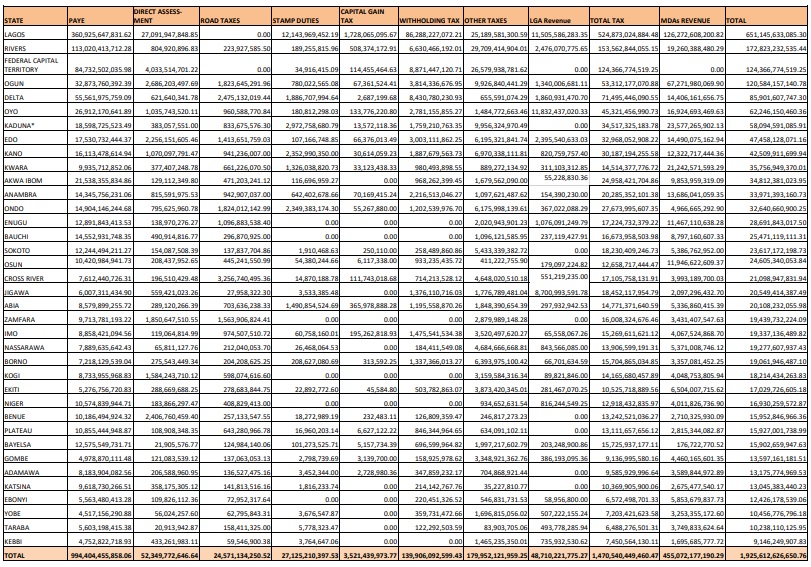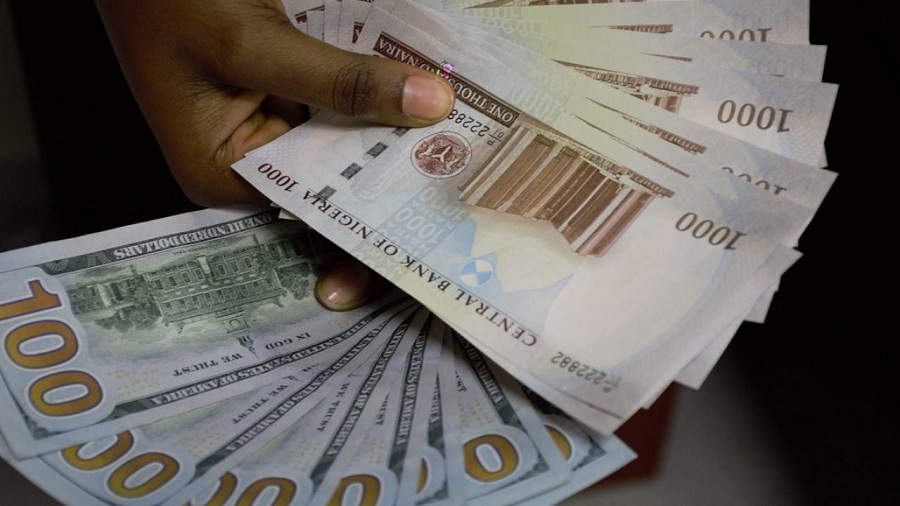The Federal Government is taking steps to inject $10billion into the nation’s foreign exchange market to clear outstanding obligations on forward contracts. They are also to boost our foreign reserves.
Minister of Finance, Wale Edun, made this known at the opening of the ongoing Nigerian Economic Summit Group (NESG) meeting in Abuja yesterday.
President Bola Ahmed Tinubu, who attended the 29th edition of the NESG meeting, said his “government will uphold the sanctity of every legitimate contract, consistent with our commitment to enshrining fairness and the rule of law in the country”.
The President added: “Specifically, as it relates to foreign exchange obligations of the government, all forward contracts that the government has entered will be honoured and a framework has been put in place to ensure that these obligations are met in due course.”
The President also said a framework has been established to ensure that the government meets its foreign exchange obligations as stipulated in the contracts. He said there must be consumer credit, saying the scheme “will have to come to effect as soon as possible. I task my team and my colleagues to build this programme, develop it now. We cannot talk about anti-corruption when you have to look for cash to buy a car, when there’s no mortgage for homeownership.
Tinubu asked rhetorically: “Where do you expect a civil servant to have N3 million or N5 million for housing without corruption? If you don’t change and plan the welfare of your judiciary and you ask them to be fair, render justice with mercy, with a hungry stomach? he queried.
President Tinubu noted that Nigeria aims to achieve a $1 trillion economy by 2026 and $3 trillion within this decade through sustainable and competitive growth.
He said the private sector is crucial to achieving this goal, and that the government is seeking collaboration and support from industry leaders to realize this vision.
Public-private partnerships and successful models from the past, he said, will be utilised to ensure a prosperous Nigeria for all. “The private sector is encouraged to bring their ideas, leadership, and capital to build a hopeful future.
”I am confident that by working closely with all of you in the private sector, financing our $3 trillion National Infrastructure Stock can be achieved in 10 years and not in 300 years.
“Building megacities in every geopolitical zone of the size and scale of Lagos must not take us another six decades. We can do it in one decade. A fully networked and connected Nigeria by rail, gas, fibre optics and road network can be constructed in less than 20 years. Establishing thriving Industrial zones in every part of Nigeria is possible before 2030”.
Also, the Federal Government said it has outlined a comprehensive framework to transform the foreign exchange market. In addition, the government said an expected inflow of $10 billion in foreign exchange is coming into the economy in a few weeks time to boost the country’s foreign reserve.
The goals of the new forex market will be the simplification, digitalization, and regulation with the aim of creating a formal market where all legal and legitimate transactions will be actualised.
There will be strict enforcement and rules in place to prevent unauthorized activities and fluctuations in exchange rates caused by individual transactions, with the expected outcome resulting in more liquidity, culminating in stable foreign exchange market.
Edun, spoke at NESG meeting, added: “As part of a wider review, there’s a revamping of the foreign exchange market such that the foreign exchange market will be simplified, it will be digitalised and will be reformed, such that all legal and legitimate transactions will fall within the purview of the authorities and a formal market. Anything outside that will be illegal and will be a criminal offense and will be punished.
The new Forex market he said, “will be robustly followed up, so that if you want to pay school fees, if you want to pay a health bill, it will be simplified. And you’ll be able to just provide perhaps an identity such as a BVN or NIN and you do your transaction, it will be formal”. He said the foreign exchange market is undergoing changes to make it more straightforward and technologically advanced so that currency exchange processes will become easier to understand and more accessible through digital platforms.
Edun said all legal and legitimate foreign exchange transactions will now be part of a formal market, regulated by the authorities, adding that any currency exchange activity outside this formal market will be considered illegal and may lead to criminal consequences and punishments.
He said there will be strict enforcement of these regulations, saying any unauthorized, or unregulated foreign exchange transactions will be considered a criminal offense and will be subject to robust follow-up and potential legal consequences.
The revamped system he said, aims to simplify transactions for common purposes like paying school fees or health bills, stating that Individuals may only need to provide certain identification details, such as a BVN (Bank Verification Number) or NIN (National Identification Number), to conduct these transactions in a formal, regulated market.
Edun said the new foreign exchange market will operate similarly to a stock exchange. This means that individual transactions, even if they are relatively small, will not significantly impact foreign exchange rates. Exchange rates will be determined based on rules, regulations, price discovery mechanisms, as well as price-setting terms.
The minister said the changes will affect all types of foreign exchange transactions, whether conducted through banks, bureaux de change, or mobile apps. All of these will be integrated into the formal market, ensuring uniformity and regulation, he said, adding that these changes are expected to increase liquidity in the foreign exchange market. This implies that the market will have more participants and a higher volume of transactions due to its simplified, formalized and regulated nature.
With regards to the $10 billion coming in a matter of weeks, Edun said: “There is a line of sight on $10 billion worth of inflow of foreign exchange in the relatively near future, in weeks, rather than months. As a whole and comprehensively should lead to the flow of foreign exchange.”
Edun added that in terms of monetary — fiscal policy, “the 43 items that have recently, been allowed legitimate and eligible for foreign exchange, is really an example of the kind of overlapping that will not take place in the presidency of Bola Ahmed Tinubu.
“A monetary instrument, which is foreign exchange, was used to deliver a fiscal objective, which was to protect domestic industry, and to encourage local output. That is being rectified, the ban has been lifted. But on the fiscal side, there is a study under a very able fiscal policy and tax reform committee led by Taiwo Oyedele to make sure that industries that need to be protected are protected, to make sure that industries that actually needed to import, have tariff regimes which allow them to import. So that’s part of the correction, we are already in partnership with the private sector.
“Mr. President had announced that he has taken measures to deal with the illiquidity in the foreign exchange market, which we know is very problematic at this time. The market is illiquid, it’s not functioning properly because there is not enough supply of foreign exchange and there are various reasons for that.
“The solution that Mr. President has put on the table, is number one, he has signed an executive order that effectively, legally allows under forbearance, all the cash that is in the domestic economy to legally come into the formal money supply. People will be able to take the cash that they have and put inside the system.
“There’s another executive order that allows for the domestic issuance of foreign currency instruments, so that they will have an incentive to provide that foreign exchange from whatever source into income bearing instruments.
Also speaking at the session, the Governor of the Central Bank of Nigeria (CBN), Yemi Cardoso said the attempt to unify the foreign exchange market has not been perfect, but it has resulted in more revenue.
He said difficult decisions have been made, and now the focus of the CBN is on managing the market to make it more predictable and accessible for everyone.
The CBN governor said, “he is working on creating clear rules and an ecosystem that will last for years. Foreign investors are interested in engaging with Nigeria, and the central bank is committed to maintaining price stability in the future”.












